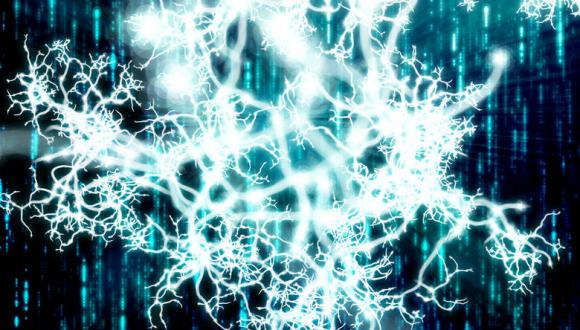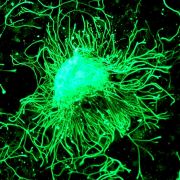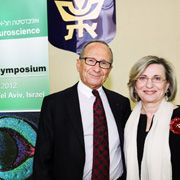Restoring Order in the Brain
Alzheimer's disease is the most widespread degenerative neurological disorder in the world. Over five million Americans live with it, and one in three senior citizens will die with the disease or a similar form of dementia. While memory loss is a common symptom of Alzheimer's, other behavioral manifestations — depression, loss of inhibition, delusions, agitation, anxiety, and aggression — can be even more challenging for victims and their families to live with.
Now Prof. Daniel Offen and Dr. Adi Shruster of Tel Aviv University's Sackler School of Medicine have discovered that by reestablishing a population of new cells in the part of the brain associated with behavior, some symptoms of Alzheimer's disease significantly decreased or were reversed altogether. The research, published in the journal Behavioural Brain Research, was conducted on mouse models; it provides a promising target for Alzheimer's symptoms in human beings as well.
"Until 15 years ago, the common belief was that you were born with a finite number of neurons. You would lose them as you aged or as the result of injury or disease," said Prof. Offen, who also serves as Chief Scientific Officer at BrainStorm, a biotech company at the forefront of innovative stem cell research. "We now know that stem cells can be used to regenerate areas of the brain."
Speeding up recovery
After introducing stem cells in brain tissue in the laboratory and seeing promising results, Prof. Offen leveraged the study to mice with Alzheimer's disease-like symptoms. The gene (Wnt3a) was introduced in the part of the mouse brain that controls behavior, specifically fear and anxiety, in the hope that it would contribute to the formation of genes that produce new brain cells. According to Prof. Offen, untreated Alzheimer's mice would run heedlessly into an unfamiliar and dangerous area of their habitats instead of assessing potential threats, as healthy mice do. Once treated with the gene that increased new neuron population, however, the mice reverted to assessing their new surroundings first, as usual.
"Normal mice will recognize the danger and avoid it. Mice with the disease, just like human patients, lose their sense of space and reality," said Prof. Offen. "We first succeeded in showing that new neuronal cells were produced in the areas injected with the gene. Then we succeeded in showing diminished symptoms as a result of this neuron repopulation."
"The loss of inhibition is a cause of great embarrassment for most patients and relatives of patients with Alzheimer's," said Prof. Offen. "Often, patients take off their pants in public, having no sense of their surroundings. We saw parallel behavior in animal models with Alzheimer's."
Next: Memory
After concluding that increased stem cell production in a certain area of the brain had a positive effect on behavioral deficits of Alzheimer's, Prof. Offen has moved to research into the area of the brain that controls memory. He and his team are currently exploring it in the laboratory and are confident that the results of the new study will be similar. "Although there are many questions to answer before this research produces practical therapies, we are very optimistic about the results and feel this is a promising direction for Alzheimer's research," said Prof. Offen.
As originally reported by AFTAU.






